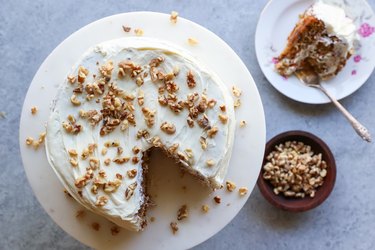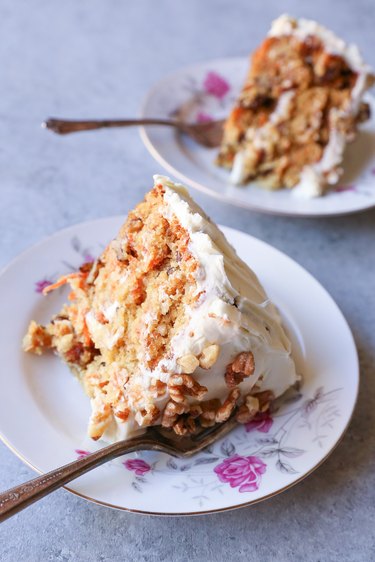Carrot cake lovers all have a firm and distinct opinion on how it should be properly prepared. With pineapple? Shredded coconut? Sultanas instead of raisins? Nuts or no nuts? There are many iterations on how to make a mouth-watering carrot cake, and let's just say that this recipe takes the cake for perfection. Classic carrot cake is an absolute pleasure to prepare and share with family, but for those with food intolerances, finding the right recipe can be a challenge. This gluten-free, dairy-free recipe is great for sharing at a gathering, plus, there are plenty of frosting options to cater to your guests needs.
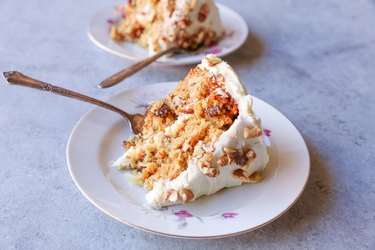
Video of the Day
Things You'll Need
3/4 cup olive oil (see note)*
1 cup applesauce (sweetened or unsweetened works)
3 large eggs at room temperature
2 teaspoons pure vanilla extract
2 cups granulated cane sugar
2 cups gluten-free all-purpose flour
1 teaspoon baking soda
2 teaspoons baking powder
1/2 teaspoon ground cinnamon
1/2 teaspoon sea salt
2 cups grated carrot
1 cup unsweetened shredded coconut
1 cup raw walnuts, chopped
1/2 cup raisins
Frosting Options
- Use store-bought cream cheese frosting to frost the cake. (Double check that it's dairy-free).
- Make a traditional Cream Cheese Frosting using the recipe found here.
- Follow this recipe for Vegan Cream Cheese Frosting from Minimalist Baker for a dairy-free option (Note: You will need to double the recipe to have enough frosting to frost the cakes).
Video of the Day
Tip
*If you'd like to add pineapple, you can reduce the oil to 1/4 cup and add 2/3 cup of canned crushed pineapple in juice, undrained.
Step 1: Preheat and Prepare the Ingredients
Preheat the oven to 350 degrees Fahrenheit. Lightly oil or spray two 8" round cake pans (you can also use two spring form pans), and line the bottoms with parchment paper. Measure out your ingredients.
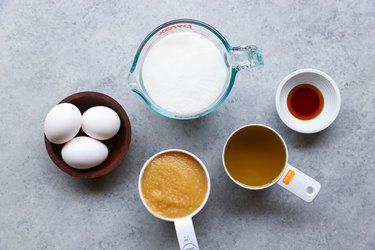
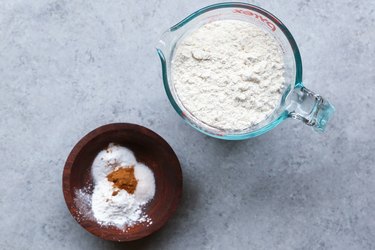
Step 2: Combine Wet Ingredients
Start by combining the wet ingredients (olive oil, applesauce, eggs, and vanilla extract) with the sugar. Add the ingredients to a stand mixer fitted with the paddle attachment or use a mixing bowl and a hand mixer. Beat until mixture is combined and reaches a creamy consistency.
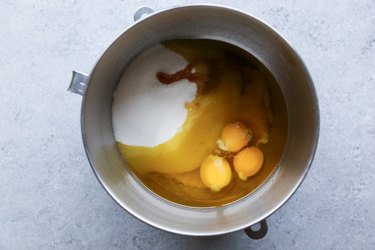
Step 3: Combine the Dry Ingredients
Add the gluten-free all-purpose flour, baking soda, baking powder, cinnamon, and salt to the mixing bowl and beat just until combined.
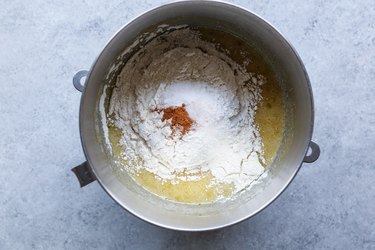
Step 4: Add the Solid Ingredients
Use a rubber spatula or spoon to fold in the grated carrot, shredded coconut, walnuts, and raisins. Continue mixing until everything is combined.
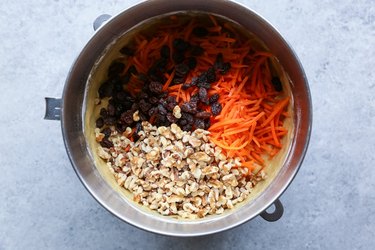
Step 5: Transfer Batter to Baking Pans
Divide the batter between the two prepared 8" cake pans.

Smooth into an even layer.
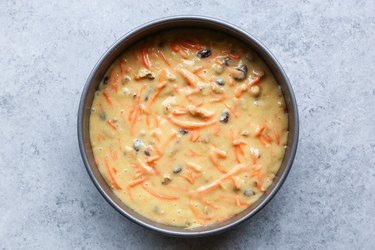
Step 6: Bake the Cakes
Place cake pans on the center rack of the preheated oven. Bake 25 to 35 minutes, or until the cakes are golden-brown and test clean when a toothpick is inserted in the center. While the cakes are baking, prepare the cream cheese frosting if making homemade.
Step 7: Allow Cakes to Cool
Remove the cakes from the oven and allow them to cool 25 minutes. Run a butter knife between the edge of the cakes and the pans to help release the cakes. Turn the cakes out onto a cutting board, peel the parchment paper off of the cake and discard. Allow the cakes to cool at least an additional 30 minutes before frosting them. When ready to frost, place one of the cakes on a cake stand (or dish you'll be using for serving or storing the cake).
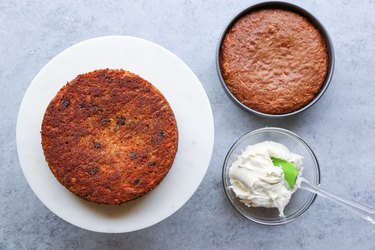
Step 8: Frost and Assemble Cake
Spread a thick layer of frosting over the surface of the cake that's sitting on the cake stand, creating the center layer of frosting.
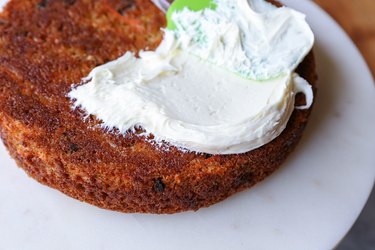
Smooth frosting into an even layer.
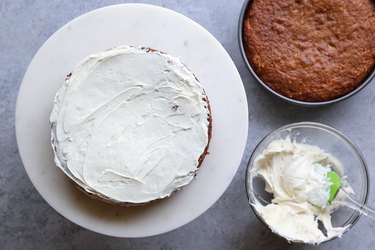
Carefully place the second cake on top of the bottom cake, creating the top layer. The easiest way of doing this is first turning the cake out onto a cutting board, then using a spatula to carefully lift the cake off of the cutting board.
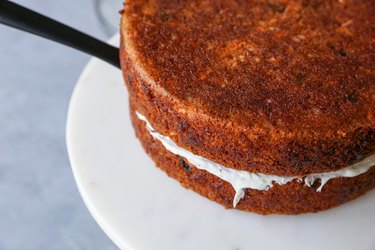
Frost the remainder of the cake by evenly spreading the cream cheese frosting over the full surface and sides of the cake.
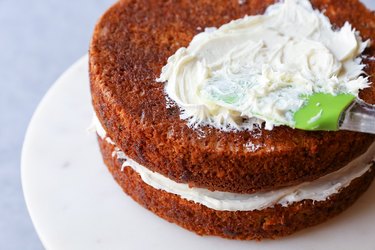
If desired, garnish the cake with chopped nuts.
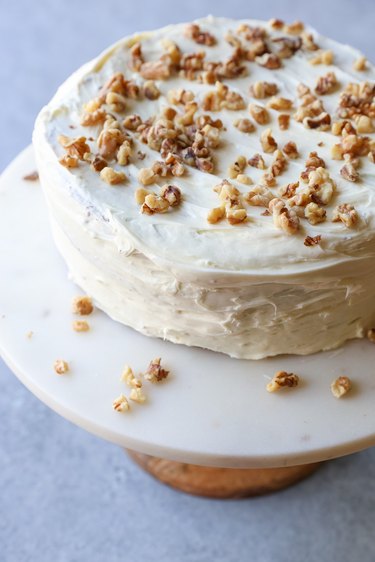
Step 9: Serve and Enjoy!
Slice the carrot cake using a large knife. Note: The cake will be easier to slice after sitting for 12 hours or more.
